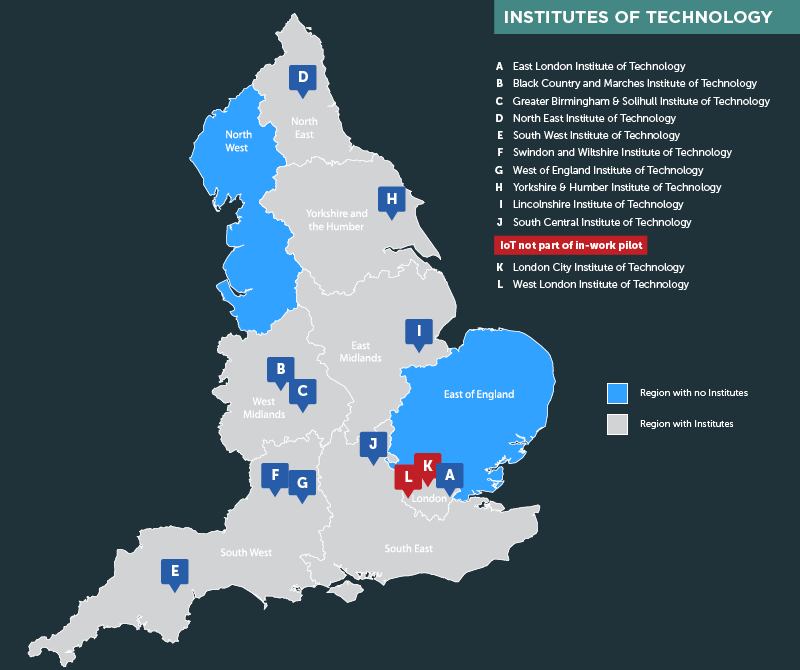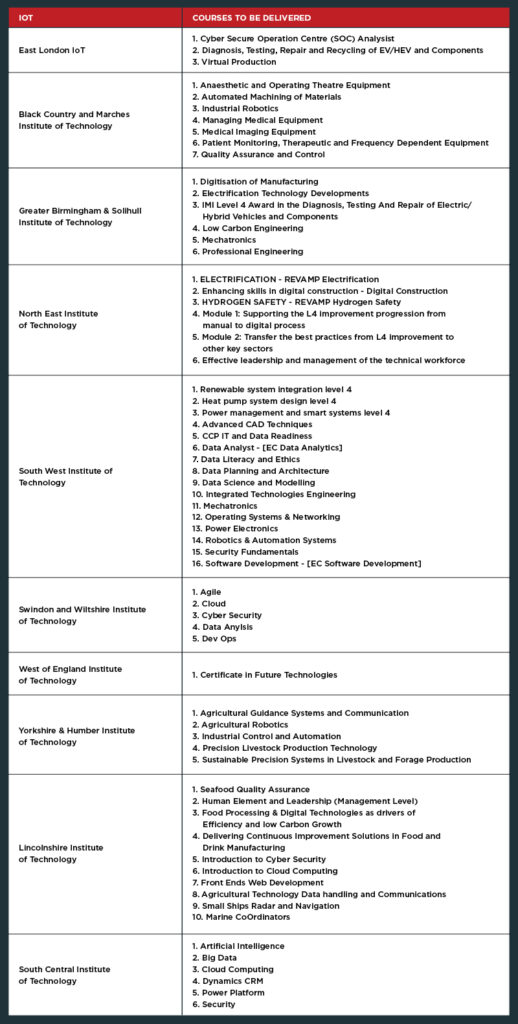Up to 4,000 working adults will be offered new short technical skills courses for free in Institutes of Technology later this month – but the north west and east of England miss out again.
Sixty-five short and modular courses in “sought-after” science, technology, engineering and maths (STEM) subjects have been developed by IoTs as part of an “in-work skills pilot” being funded through the National Skills Fund, the Department for Education said today.
The courses will be offered to people aged 19 and over in employment for free to help them rapidly upskill or retrain, with priority given to those “employed locally to the IoT in related industries such as digital or healthcare”.
Courses such as artificial intelligence, digitisation of manufacturing, digital construction, agricultural robotics, and cyber security will be available. They will be a blend of classroom and remote online study and vary in length from 50 to 138 hours.
The government has spent £170 million so far on the creation of 12 IoTs, but only 10 will take part in the pilot (see map below). Two of the three institutes based in London are not involved.
None of the 12 are however located in either the north west or east of England, as previously revealed by FE Week, meaning people in those two areas will miss out on this opportunity to study a free STEM course.
The DfE has recognised the cold spot issue and is currently tendering to open eight new IoTs to ensure every area of England is covered – but the winners are yet to be revealed despite announcing the plan more than two years ago.
The department told FE Week winners of the wave two competition are expected to be announced in December 2021.
A spokesperson added that lessons learnt from the IoT pilot will “help shape future government policy”.

Commenting on the new courses, minister for further and higher education Michelle Donelan said: “Making sure more people can train and develop at any stage of their life to secure high skilled, high paid jobs is at the heart of our plans.
“These fantastic new courses will open up more training alternatives for adults, address skills gaps in our economy and level up opportunities across the country.”
IoTs are collaborations between employers, colleges and universities. They specialise in delivering higher technical education and training in STEM subjects.
A total of £6.4 million is being invested to support IoTs to offer the free courses, even though the DfE previously earmarked £10 million for the pilot. The department said bids did not reach the original estimated amount, so the remaining £3.6 million will be “redeployed elsewhere in the department”.
The IoTs have worked in partnership with local employers to ensure courses on offer “address existing skills gaps, meaning employees from both large and small and medium-sized businesses will be able to gain in demand new skills or retrain”.
They will be “credit bearing” but certification will vary by course. The department said that where possible ,the IoTs will be offering accreditation as part of the courses. For example, Black Country and Marches Institute of Technology will deliver courses that will be accredited by awarding bodies City & Guilds, and OCN-WM.
A spokesperson added that boosting the uptake and quality of higher technical qualifications – that sit between A levels and degrees – and supporting adults to study more flexibly throughout their lives are a key part of the government’s reforms to post-16 education and training.
From September 2022, the government will start rolling out newly approved higher technical qualifications, beginning with digital, and followed by construction and health in 2023. A full suite of qualifications will be available by 2025.
The DfE hopes that higher technical qualifications will provide a “natural progression route for both young people taking T Levels or A levels, and adults looking to upskill or retrain”.
The 10 IoTs taking part in the in-work pilot










Your thoughts